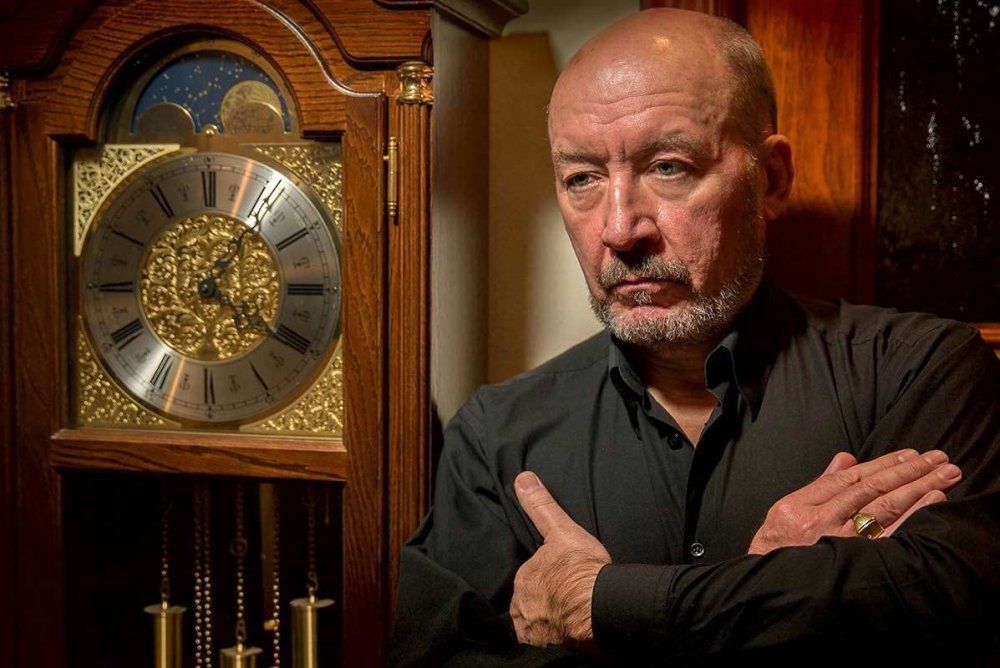
Russian expert on Ukraine: "Overwhelming majority of Russians know nothing about Ukraine"
Head of the Center for Ukrainian Studies of the Institute of Europe at the Russian Academy of Sciences, Russia's chief expert on Ukraine Viktor Mironenko has told UNIAN about the misconceptions of the Russian elite that provoked the annexation of Crimea and the attempt to create “Novorossiya,” and suggested a way out of the current situation.
Analyzing the past two years of the Ukrainian-Russian relations, Viktor Mironenko remains one of the few in Moscow, who blames Russia's policy toward Ukraine of what has happened. The expert believes that the main reason lies in ignorance and misunderstanding of Ukraine and the Ukrainian reality, which, in fact, led to the tragedy. Mironenko believes that Ukraine is a victim, but also offers not to forget about the mistakes of the Ukrainian side: problems in the region were of no secret to anyone in Ukraine, as well as the mood of the elite and the way Russian TV affected mass consciousness. At the same time, he does not consider Russian propaganda a success, otherwise Russia wouldn’t have needed to seal the positive results of its "soft power" with artillery and paratroopers.
Viktor Mironenko is sure that there is no military option for the liberation of uncontrolled territories. According to him, Ukraine’s main task today is to prevent their extension and be ready, if necessary, to use all means available to protect its territorial integrity and national sovereignty. This requires a strong army, a healthy economy and the people's trust. In this context, Ukraine’s main task is state modernization, and the country has everything it needs to accomplish it, according to the expert.
In his opinion, the annexation of the Crimea has become a major obstacle to the modernization of the economies of Ukraine and the Russian Federation. After all, economic development is the criterion of any country’s success.
Russia is now celebrating the second anniversary of the occupation of Crimea. What has the seizure of the Ukrainian peninsula given the Kremlin?
In my opinion, changing the borders within the so-called "post-Soviet space" is a big political mistake from the point of view of Russian political interests. It is difficult to determine its root cause. We can assume that the conclusion has been reached, which was right per se, that the policy of preservation of Russia’s political influence in Ukraine had not yielded the expected results; an attempt to get Ukraine into the [EU] integration on Russia’s terms has failed. Obviously, it was concluded that the previous policy aimed at retaining political influence on Ukraine is a failure. Besides, the attempts to involve Kyiv into Moscow’s projects for the reintegration of the post-Soviet space turned out to be futile. In late 2013 it became clear that nothing good came out of it, so someone lost their temper and decided not to let it go any other way either.
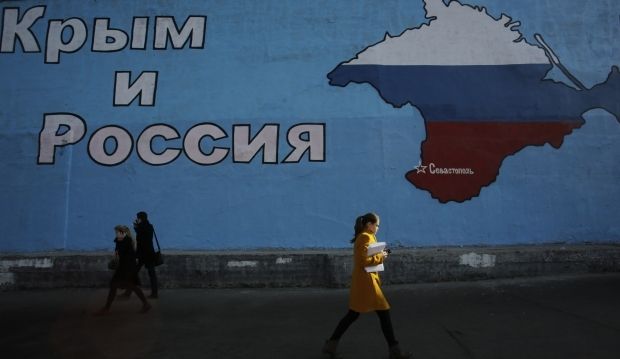
That is, after ousted Viktor Yanukovych fled, they decided to bite off as much as they can?
A train of thought closer to the end of 2013, I believe, was something like this: Ukraine came out from under Russia's political influence, and it can’t be engaged in its entirety in any project. In part, it really was so. But only in part. The thing is that Russia is yet to discover Ukraine. Strange as it may sound, Ukraine is the country most unknown in Russia. And now, it is also under the cover of lies of propaganda. Ukrainian scholastic studies were only starting to develop, but the events of 2004 and, especially, the recent events have almost stopped this development.
I am aware today of only up to two or three dozen of scholars – historians, economists, political scientists – who thoroughly and objectively study Ukraine in Russia. That is why many of them are critical of the Russian policy with regard to Ukraine. Perhaps that is why their assessments and expert opinions, that do not coincide with the official position, are often left unheard. Some were already labeled the notorious "fifth column." In Russia, there are no specialized research centers on Ukrainian studies. The first of them was created five years ago at the Institute of Europe. Formally, it’s only me who works there.
The perception of Russia’s nearest, and most important in my opinion, neighbor is often strikingly inadequate. Lack of understanding of what is happening in Ukraine is adjacent to resentment toward obstinate Ukrainians. It seems that many of those who took and keep taking decisions on Ukraine are still confident that these decisions meet Ukraine’s interests. It did not start yesterday. In regard to Crimea, since the declaration of independence of Ukraine, only the lazy ones in Russia didn’t try to make a reputation of a patriot and a political career on this issue.
But the success of the Russian Federation have been provided solely by the Russian army...
The main topic of my research is the Russian political influence in Ukraine. Having analyzed the problem, I came to the conclusion that over the post-Soviet years, the Russian political influence has consistently and steadily decreased in Ukraine. And it’s not so much due to Ukraine or some third force, but because of a fatal misunderstanding of the country’s features and categorical imperatives of its development. Only in this way can I explain the fact that the political bid was made on a single group in Ukrainian politics, or even on one person – Viktor Yanukovych. Even after he finally made it to the president’s chair, the Kremlin once again tried to "pack" Ukraine into another integration project, not taking into account its specifics. It became clear that neither the political nor the economic means to attract Ukraine into the Eurasian Economic Union would not succeed.
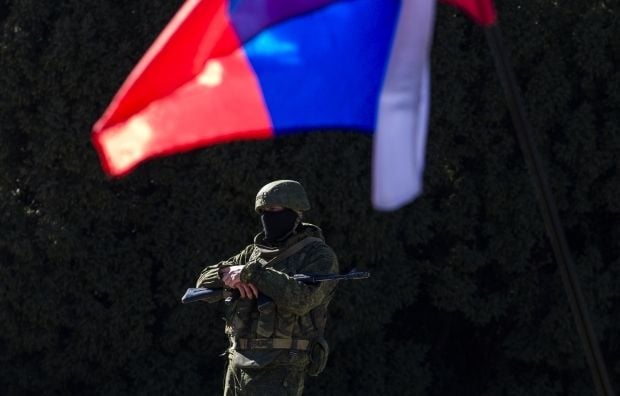
When political influence is lost, and the policy is not adjusted accordingly, there are only solutions involving force left. I don’t think that the military option was seriously considered regarding the whole of Ukraine. At the core there was an idea persistently imposed by some experts that once Ukraine is "pressed” or hit in the sore spot, the country will collapse: the western part will go to Europe, and the east will go to Russia.
In your opinion, what are the prospects of bilateral relations between the two countries in the long run?
Russia and Ukraine, as the entire Soviet Union previously, have faced for the past decades a critical need for deep and comprehensive modernization. Obviously, its depth and rate to a great extent depend on their economic cooperation. When there is no such interaction, modernization can be slowed down or even suspended for many years. The world will not wait. Both countries may be pushed to the to the ditch along the path the whole world seems to be moving.
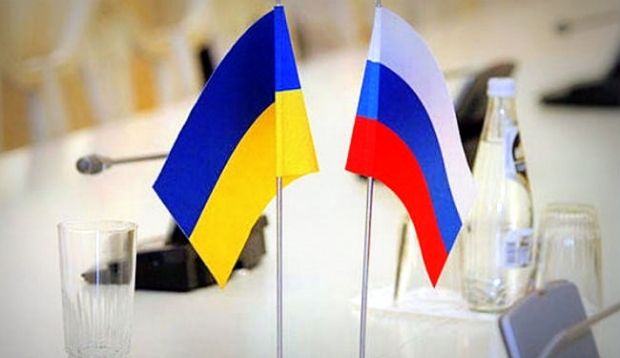
Trade, economic, scientific, cultural, any other cooperation, has virtually collapsed. And I'm afraid it is impossible to renew it without solving the problem with Crimea. Whatever the people’s opinion is toward the Crimean issue, they should admit the obvious – it will be this problem which will become a stumbling block in the way of the settlement of bilateral relations.
However, Russia has not stopped with the annexation of the peninsula, having attempted to pull the shroud of the "Russian World” on the whole of Ukraine. Intervention in Donbas has opened a "Pandora's box" ...
"Pandora's Box," you say ... Yes, it's a good analogy. This is thousands of victims and millions of ruined lives. But, as with Pandora, when all the troubles flew out of the box, something was still left. It was hope. What does it mean? It means that, when the smoke had cleared, it became clear that there is no more CIS [Commonwealth of Independent States]. That it was just a way to say good-bye without scandals. There is no "post-Soviet space” as such. And the most interesting point in the story is that the T’s were crossed by those who were and still are most vocal in supporting the idea of reintegration - the Russian leadership.
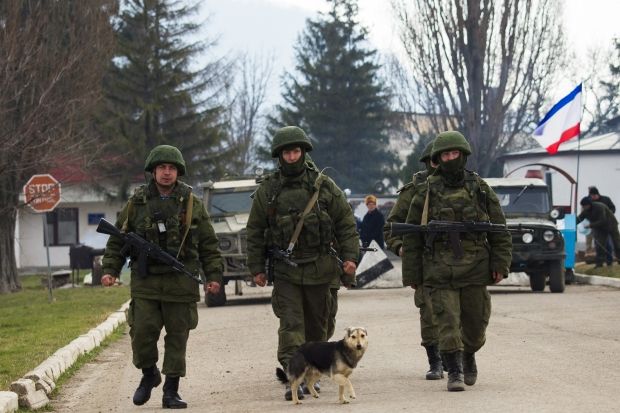
Annexation of Crimea and support of separatists in Donbas is adding to a great political uncertainty. The agreement on the establishment of the CIS provided for the borders of the republics in the Soviet Union to become recognized borders of the newly independent states that emerged on its ruins. And this agreement was observed until recently.
Now the situation has changed dramatically. One of these countries – the largest and most powerful one – made it clear that it does not intend to comply with the agreement, that the deal of 1991 no longer applies, and, therefore, the border can be changed, including by force. This is one Pandora’s box indeed!
And here is the result: Ukrainians and Russians will be enemies for 100 years, as the seizure of territories will never be forgiven...
To say that the Russian and Ukrainians are now enemies, is incorrect, in my opinion. This is an unacceptable generalization, which, as we know, is always wrong. Not all Russians come to Donbas, and you shouldn’t judge everyone by those who are willing to come and kill the Ukrainians. As far as I know, the majority of Russian citizens taking part in hostilities on the side of separatists were lured into earning "easy" money. I believe there are not many ideological fighters, that is, the people who watched too much TV and decided to fight against the "Banderites." Another thing is that the seeds of hostility have been planted into the mass consciousness of both nations; and these seeds will germinate, they already have. No one knows what to do with it.
We can’t remain enemies forever. There are processes in the world, of which we have been left behind. The world is getting more united and integrated. But the question of how to build a relationship between the two countries is still prevalent.
The need for economic relations will find its way. Presidents and governments come and go, make mistakes that cost a fortune for their people. In my opinion, both nations and, above all, the Russians, are covered by wave of mud raised by propaganda. The question arises, whether we should keep standing like rams, horns to horns? Hardly so. Life goes on. And we need to find a solution.
Do you think that amid Russian military presence in Donbas and Crimea, we can consider the context of "life goes on"?
Someone came up with a hybrid war. One can talk the talk about the presence of the Russian army, but the answer is already known, and it is voiced regularly. Technically, if they take ID’s from the soldiers, then he is not a soldier anymore, but volunteer. There are no pretty wars. But this war is very bad. And it is bad because it is difficult to finish, because, formally, there is no war. Hence the stalemate in the Minsk talks. I hope to live up to the moment when all of us know the names of those who came up with this war and let it happen.
Is it possible to resolve the situation quickly, immediately? I think it’s not. I don’t see a quick and easy way out of the conflict.
If you look at the situation from the point of view of the interests of Ukraine, as I understand them, you have to give an honest answer to your own – and the main – question: "Does Ukraine have enough prowess to return the territories controlled by separatists with the support of Russia,” “Is returning Crimea by military means possible?” I think the answer is obvious – it is impossible. Can you imagine how many weaponry has been accumulated during the years of the Cold War? Alas, in the current socio-economic situation in Russia, there are too many people willing to earn some money and pass for a hero. Therefore, there is no military solution. Moreover, by going for a military solution, Ukraine would lose the support of the West. So that the military option impossible from all perspectives – political, economic, and humanistic.
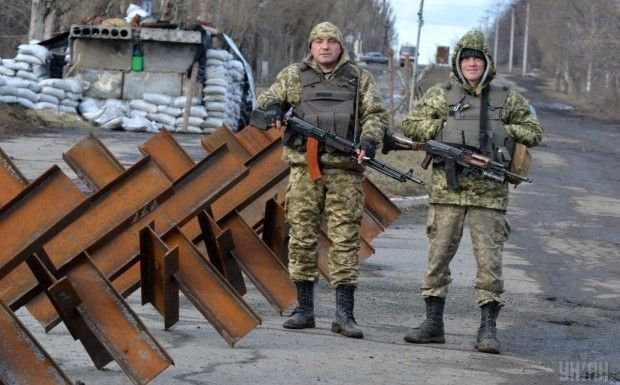
On the other hand, neither Ukraine, nor other countries around the world, with rare exceptions, will hardly ever recognize “de jure” Crimea joining the Russian Federation and the formation of a quasi-state in Donbas. One may find this unfortunate, one may resent this. Politics is the art of the possible. But this is a fait accompli.
What should Ukraine do now? It should solve the challenges it faces, respond to the new calls. It should bolster its defenses. Once well-known Russian politician Konstantin Zatulin said at a discussion in the academic institute that "Ukraine had to be finished back in 2014," and in 2015 it was too late – because it already had an army. It must be made clear to everyone that Ukraine will defend its territory by all means at its disposal.
But most important are the economic reforms. Ukraine should become the freest territory for all active and energetic people to achieve this, of course, a clear vision of the situation is needed, political will, confidence of the people, as well as understanding of national interests and the willingness to put them above personal or corporate interests, political will and confidence of the people. By and large, taking into account all the circumstances and the timing, I see no other way.
Branding Ukraine a “failed state” and comparing it with the "suitcase without a handle" is either a deliberate lie, or a deep misconception. Amid all the problems – war, grave social and economic situation – Ukraine can quite quickly become a respectable European country with a relatively high standard of living. It has everything for it – resources, climate, geographical location and, most importantly, people.
Who do you think it was who advised Putin to recall the mythical “Novorossiya” in order to try to grab the eastern and southern regions of Ukraine? It was after this statement when the heaviest fighting erupted, and it became clear where the "border" of the notorious "Russian World" stretches - where the invaders face fire in return...
There is a relatively well-known circle of influential people, or simply those who have access to the Russian power corridors, who consider themselves experts on Ukraine. Since 2004, they have filled most of the information space with their "expertise." They managed to create in Russian society the belief that everything on the left bank of the Dnieper river and near Crimea is actually not Ukraine. The most persistent institution in imposing this idea was the Russian Institute for Strategic Studies, the Institute of the CIS countries, and some other, less well-known, facilities. The idea was penetrated that it was the Ukrainians who made the Soviet Union collapse. Although I know for sure that the biggest credit for the collapse of the Union has the Russian team of Boris Yeltsin.
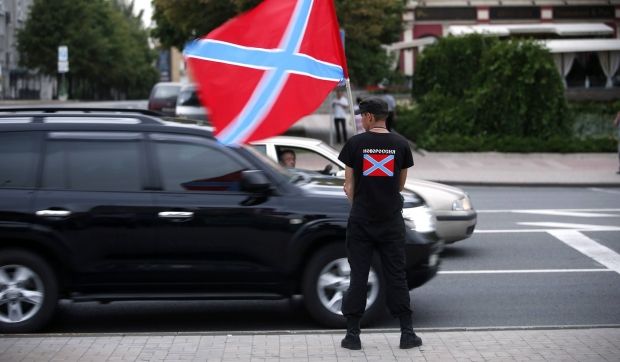
In all fairness, I must say that Novorossiya once existed in the past. But it was a long time ago, and it was a short-lived formation. I admit that, in taking such a decision, the political leadership was disoriented by experts who believe that one could step twice into the same rivers.
They succeeded because the vast majority of the Russian citizens and the country’s politicians know nothing about Ukraine – neither about historical, nor contemporary Ukraine, I mean. It is very easy to impose any point of view onto them. Could anyone who knows Ukraine possibly believe that the Russiam language was persecuted in Donetsk and Luhansk regions?! To think about it, one needs to have a very rich imagination. Or who would believe in a fairy tale, that “Banderites” from Wester Ukraine were coming to Crimea, to establish their rule? But people believed, after all!
You said that partly, Moscow’s decisions of the last two years were adopted because of the offense. How is that?
There is a great misconception in the Russian government and expert community of the reasons why Ukraine does not agree to follow the Russian way. They fail to understand, why refuse to integrate with the Russian Federation, where Ukraine can get the cheapest gas. They wonder why Ukrainians don’t understand how fortunate they are.
The countries have divided in such a way that there can’t be one common path. The goal is common – modernization and development, but the paths toward this goal are objectively different. Russia has oil and gas, that is, all which kept the Soviet Union alive. It turns out, back in good old times of Brezhnev, oil cost $137-$140 per barrel. And by 1985, it has fallen close to $30.
Now history repeats itself. There were ten years of "golden rain,” and now it’s unclear what will come next.. But most importantly, Ukraine has never had all of this. For Russia, energy resources which raised in price were most important, while Ukraine’s main resource is its people. Russia has seven people per square kilometer, Ukraine has 80. Hence, different ways of development due to the different conditions.
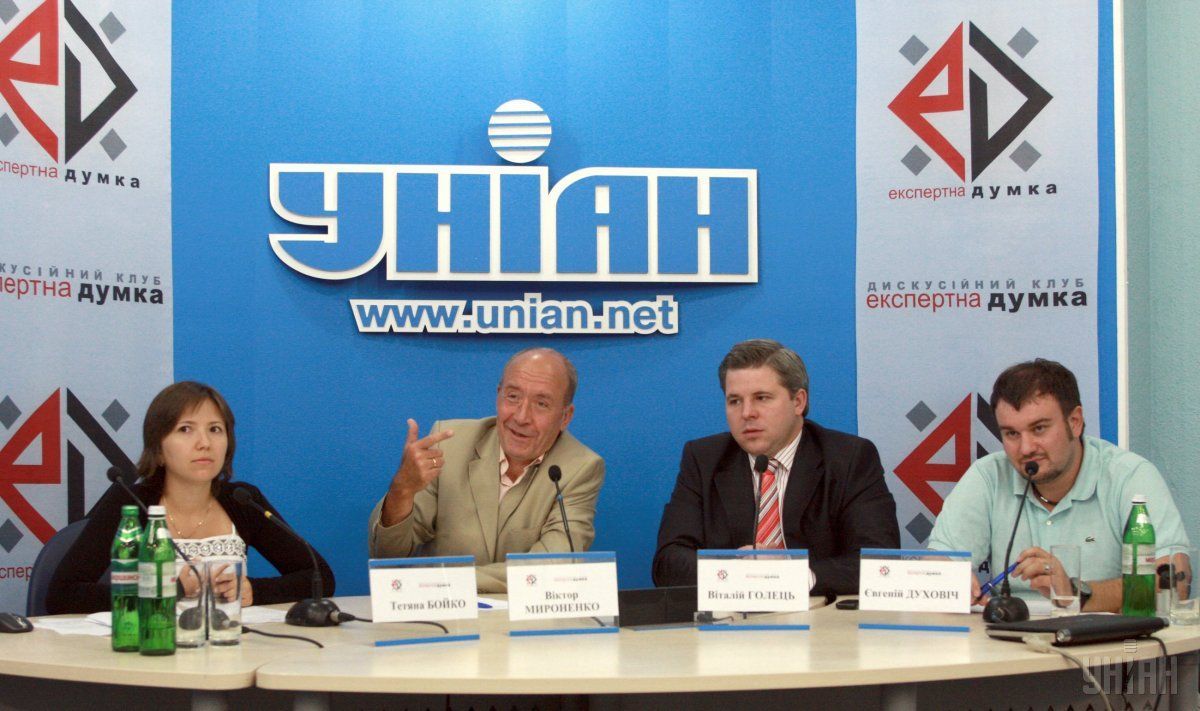
In Russia, we thought, however, that the Union will break into uniform pieces, and each piece will be drawn to each other. Because of this deepest delusion, we have ultimately come to the political mistakes that later led to the tragedy.
Untying this knot is a very daunting task. Nothing can top the agenda both for Russia and for Ukraine. We need to find an algorithm to end the war at any cost. There are the terms that Kyiv cannot change, and rightly so. After all, Ukraine is the victim. But Moscow won’t change its stance either. There are no indications of that. I’m afraid there will be a historic remake of a Cold War scaled down to the two countries – Russia and Ukraine.
Roman Tsymbaliuk, Moscow

